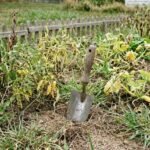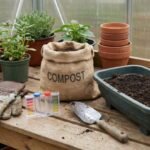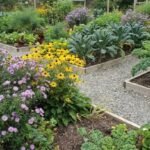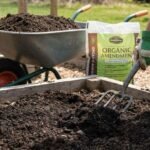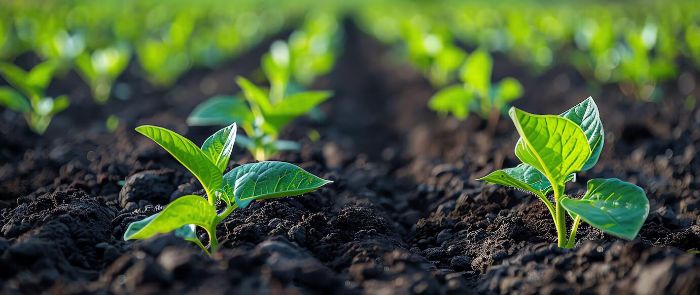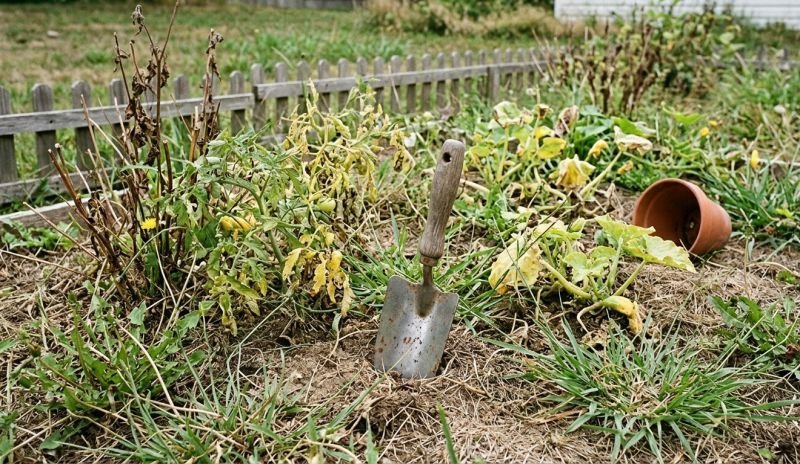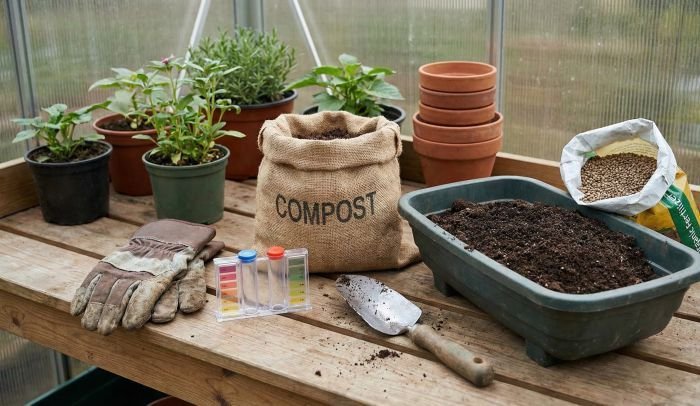Do you want to boost your crop yields and keep your farm healthy for a long time? The answer is in advanced soil management tailored for your plants. By making your soil fit the needs of your crops, you can help them grow better and make your farm sustainable.
Advanced soil management is more than just the usual way of doing things. It looks at soil type, pH levels, and nutrients to make a special environment for plants to grow well. If you’re a farmer, gardener, or land manager, knowing how to manage soil well is key to reaching your goals.
This guide will take you deep into advanced soil management. We’ll teach you how to make your soil perfect for your plants. You’ll learn about soil type, adjusting pH levels, making special soil mixes, and using new techniques. Are you ready to learn how to make your soil work better for you and increase your crops?
Key Takeaways:
- Advanced soil management helps you get more from your crops and is good for the environment.
- Customizing soil means looking at soil type, pH levels, and nutrients to meet plant needs.
- Knowing about soil type is key to making soil right for your crops.
- Changing soil pH levels helps plants get the nutrients they need.
- Making special soil mixes and using organic or synthetic helpers are important for better soil management.
Table of Contents
Introduction
Welcome to the world of advanced soil management. Here, we learn how to make soil perfect for plants. We’ll see why it’s key to customize soil for plants.
Importance of Advanced Soil Management
Soil management is crucial for farming and keeping crops healthy. It’s the base for plants to grow well. It affects the health and productivity of the whole ecosystem.
Advanced soil management is very important. It helps plants grow better, gets them more nutrients, and makes soil better. It also cuts down on pests, diseases, and harm from the environment.
Overview of Soil Customization
Not all soils are the same. Plants need different nutrients, pH levels, and textures. Customizing soil means changing it to fit the needs of different plants.
This can mean changing soil pH, adding special soil helpers, changing texture, or adding organic stuff. By making soil right for each plant, we get better nutrient use, water holding, and root growth. This leads to healthier plants and more food.
Understanding Soil Composition
Soil composition is key to plant growth success. Knowing what’s in your soil helps you manage it well. Soil has many parts that make it special.
Essential Soil Components
Soil has minerals, organic matter, water, air, and living things. Minerals come from rocks and help plants grow. Organic stuff like old plants and animal waste adds nutrients and keeps soil moist.
Water is vital for plants, and soil holds it for them. Soil also has air spaces for roots to breathe. Living things like worms and bugs help with nutrients and soil health.
Soil Texture and Structure
Soil texture is about sand, silt, and clay levels. These affect how it holds water, drains, and gives out nutrients. Sandy soils drain well but might lack nutrients. Clay soils hold water but can get hard.
Soil structure is how particles are grouped. Good soil lets water and roots move easily, helping plants grow. Bad structure means roots can’t grow well and plants don’t get enough air, when compacted layers block water and root movement.
Knowing about soil helps gardeners and farmers. They can take better care of their plants.
Adjusting Soil pH Levels
Getting the soil’s pH right is key for plants to grow well and for soil health. The pH level affects how plants get nutrients and how good bacteria work in the soil. We’ll look at why pH is important and how to change it for different plants.
Why pH Matters
Soil pH changes how plants take in nutrients. Each plant likes a certain pH. If the pH is off, plants might not get what they need or could get too much of something bad.
Acidic soil makes it hard for plants to get phosphorus, calcium, and magnesium. Alkaline soil can make plants lack important nutrients. Knowing about soil pH helps farmers and gardeners grow many types of crops well.
Testing Soil pH
Before fixing the soil’s pH, you need to know what it is. You can use soil testing kits for a quick check. These kits have test strips or solutions that change color when mixed with soil.
Or, you can send soil to a lab for a full analysis. Labs give detailed info on pH and nutrients.
Methods to Raise pH
If the soil pH is too low, you might need to make it more alkaline. Adding lime like dolomite or calcitic lime works well. It slowly makes the soil more alkaline and adds calcium and magnesium.
Using wood ash from hardwood fires is another way to raise pH. It has potassium and calcium. Adding compost or manure can also help by making the soil more alkaline and better structured.
Methods to Lower pH
For high pH soils, you need to lower it. Sulfur is a good choice for this. It turns into sulfuric acid when it mixes with water, slowly making the soil more acidic.
You can also use acidifying fertilizers like ammonium sulfate or urea. Adding things like pine needles, coffee grounds, or peat moss can also lower pH. Changing soil pH takes time, so watch the levels closely to help plants grow well.
Customizing Soil Blends
Customizing soil blends is key for better plant growth and health. By making soil fit the needs of different plants, gardeners and farmers help plants thrive. This part talks about how to make custom soil mixes and use soil amendments.
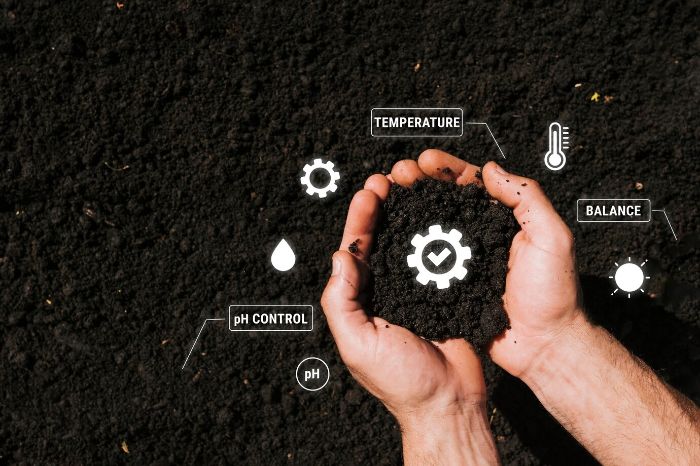
Identifying Plant-Specific Soil Needs
It’s important to know what plants need from the soil. Plants like different soil pH, moisture, nutrients, and drainage levels. By learning what each plant needs, growers can help them grow well.
Creating Custom Soil Mixes
Mixing different soils and additives makes custom soil mixes. This lets growers change soil texture, improve drainage, and add nutrients. These mixes can be made for many gardening and farming needs, like containers or specific crops.
Soil Amendments and Their Uses
Soil amendments are key for customizing soil. They make soil better, add nutrients, and help good microbes. Things like compost, perlite, and vermiculite are common amendments. Each one does something different, like holding water or making soil airy.
Using the right amendments lets growers fix soil problems, boost fertility, and meet plant needs.
Organic vs. Synthetic Amendments
Gardeners and farmers can choose between organic and synthetic amendments for soil health. Both types aim to boost soil fertility and give plants what they need. But, they are different in what they are made of and how they work. Knowing the good points of each is key to taking care of the soil well.
Benefits of Organic Amendments
Organic stuff like compost, manure, and cover crops are great for soil. They are full of nutrients and help the soil last a long time. Here’s why organic stuff is good:
- Improved Soil Structure – It makes the soil better by creating air pockets and holding more water.
- Enhanced Nutrient Availability – It gives nutrients to plants slowly, so they get what they need.
- Promote Beneficial Microorganisms – It helps good bugs like bacteria and fungi grow, keeping the soil healthy.
- Reduced Environmental Impact – Being from nature and needing little processing, it’s better for the planet than synthetic stuff.
So, organic stuff is a top pick for making soil better and farming in a way that lasts.
When to Use Synthetic Amendments
Synthetic stuff, or chemical fertilizers, also have a place in soil care. While organic stuff works well over time, synthetic stuff is good for specific situations:
- Addressing Nutrient Deficiencies – It has the right mix of nutrients to fix soil shortages.
- Meeting Plant Requirements – Some plants need a lot of nutrients fast, and synthetic stuff can give them that.
- Precision Application – It lets you give exactly what certain plants or areas need.
But, use synthetic stuff carefully to avoid harming the soil or the environment.
Advanced Soil Management Techniques
Double Digging
Double digging is a way to make the soil better. It loosens the soil more than regular digging. This is great for hard or wet soils.
By digging down two spade lengths and adding organic stuff, it makes the soil better. It helps with air, water, and root growth.

Lasagna Gardening
Lasagna gardening is about layering organic stuff to make good soil. You mix different materials like leaves and kitchen scraps. This makes the soil rich in nutrients without tilling.
It keeps the soil moist and helps good bugs live there. This is a green way to make your garden healthy.
No-Till Gardening
No-till gardening is all about not turning the soil over. Instead, you use mulches and cover crops. This keeps the soil in good shape.
It keeps the soil moist and helps good bugs live there. This is a great way to take care of your soil for a long time.
Soil Fertility and Nutrient Management
Soil fertility and nutrient management are key to good soil care. It’s important to know about macronutrients and micronutrients. Also, learn about organic and synthetic fertilization to help plants grow well and keep soil healthy.
Macronutrients and Micronutrients
Plants need macronutrients like nitrogen (N), phosphorus (P), and potassium (K) in big amounts. They also need micronutrients like iron (Fe), zinc (Zn), and manganese (Mn) in small amounts. These nutrients help plants with things like making food, growing roots, and producing fruit.
It’s important to check for nutrient shortages to keep soil fertile. Signs of not having enough macronutrients include plants growing slow, leaves turning yellow, and less produce. Not having enough micronutrients can cause plants to look unhealthy or grow strangely.
Organic Fertilization Methods
Organic fertilizers use natural stuff like compost, animal manure, and cover crops to make soil better. These methods help soil stay healthy by making it better at holding water and nutrients. They also help good bugs that make nutrients available to plants.
Organic fertilizers are good for the long run because they make soil better and are kinder to the planet. They don’t wash away easily and help many kinds of soil life. But, they give out nutrients slowly, so you need to plan carefully.
Synthetic Fertilization Methods
Synthetic fertilizers are made in labs and have the right mix of nutrients for plants. They give plants a quick boost of nutrients for fast growth and lots of produce. These fertilizers are easy to use and let you control how much you give to plants.
But, be careful with synthetic fertilizers. Too much or the wrong kind can mess up the soil and harm the environment. Always test your soil and follow the right amounts to use these fertilizers safely.
Soil Health and Maintenance
To keep farms and gardens working well, taking care of soil health is key. We’ll talk about three important ways to do this: testing soil, using cover crops and green manures, and mulching.
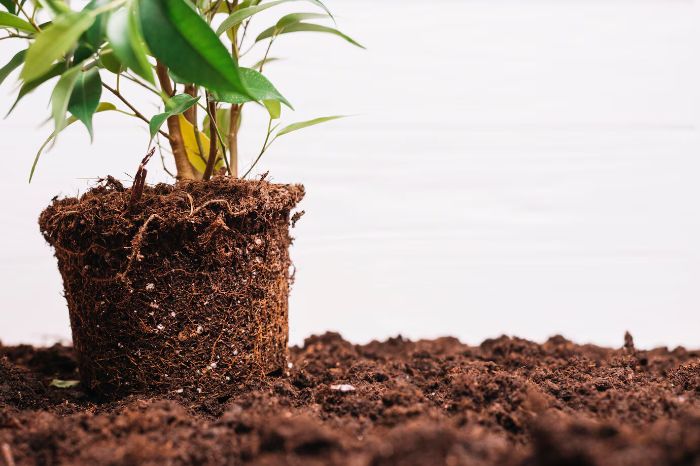
Regular Soil Testing
Testing soil often is vital. It tells us about the nutrients, pH levels, and health of the soil. This info helps farmers and gardeners know what plants need. They can then add the right stuff to keep the soil healthy for plants.
Cover Crops and Green Manures
Cover crops and green manures boost soil health and fertility. Cover crops are grown between main crops to protect and enrich the soil. They stop erosion, improve soil, and keep weeds down. Green manures are crops turned into the soil to add organic matter and nutrients. Together, they make the soil better for plants to grow.
Mulching for Soil Health
Mulching is great for soil care. It uses organic or inorganic stuff like straw or plastic to keep soil moist, control temperature, stop weeds, and prevent erosion. Organic mulches also add to the soil’s organic matter, making it richer and better for plants.
Troubleshooting Soil Issues
Advanced soil management means fixing common problems. These issues can stop plants from growing well. We’ll look at common soil problems and how to fix them.
Compaction and Drainage Problems
Compaction happens when soil gets too packed, hurting root growth and how plants absorb water and nutrients. This leads to poor drainage and more erosion.
To fix compaction, aerate the soil. Use a garden fork or a machine to break up the hard soil. This helps with airflow, water getting in, and roots growing deep.
Drainage issues often come with compaction. Waterlogged soil can cause root rot and harm plants. Use raised beds, drainage systems, or add compost and peat moss to help the soil drain better.
Nutrient Imbalances
Soil without the right nutrients can hurt plant health and growth. This can happen from too much or too little fertilizer, wrong pH levels, or plant factors.
Testing the soil is key to finding nutrient problems. This test shows what nutrients are missing or too much. Use organic or synthetic fertilizers to balance the nutrients.
Soil-Borne Diseases
Diseases from the soil can harm plants a lot. They can lower yields or even kill crops. It’s important to prevent and manage these diseases.
Rotate crops, keep things clean, and use plants that resist disease. Also, water plants right to avoid too much moisture, which diseases love.
Fixing soil problems like compaction, drainage, nutrient imbalances, and diseases helps plants thrive. Using the right strategies and techniques boosts growth and supports healthy gardening.
Conclusion
Advanced soil management is key for better plant growth and more crops. It means making soil conditions right for different plants. This helps farmers and land managers grow healthy ecosystems and support sustainable farming.
Creating custom soil mixes is a big part of this. By knowing what each plant needs, growers can make the perfect soil. This soil gives plants the right nutrients, holds water well, and has the right pH.
Adding organic stuff to the soil and using techniques like testing, cover crops, and mulching also helps. These methods make soil richer and fix nutrient problems. They make plants healthier and more productive. They also make ecosystems stronger over time.
In short, advanced soil management is vital for farmers and land managers. It helps plants grow better, increases crops, and supports green farming. By making custom soil mixes and using smart techniques, growers can build a strong base for farming. This leads to a greener and more productive future.
FAQ
What is advanced soil management?
Advanced soil management means making soil healthy and fertile for plants. It uses special methods like adding certain substances and adjusting soil pH. This makes soil perfect for different plants.
Why is advanced soil management important?
It’s key for plants to grow well and for farming to be sustainable. By making soil right for plants, farmers boost soil health and plant growth. This makes farming better for the environment.
What is soil customization?
Soil customization means making soil fit the needs of different plants. It changes soil’s makeup, pH, and nutrients. This helps plants grow strong and healthy.
How does soil texture and structure affect plant growth?
Soil texture is about sand, silt, and clay. Structure is how these particles are arranged. They affect how well plants grow by changing water and nutrient levels and root growth.
What is the significance of customizing soil blends?
Making your own soil blends lets you tailor soil for different plants. By adding specific things, you can make soil rich in nutrients and support plant health.
What are macronutrients and micronutrients?
Macronutrients are big nutrients plants need a lot of, like nitrogen and phosphorus. Micronutrients are needed in small amounts, like iron and zinc. Both are key for plant health.
